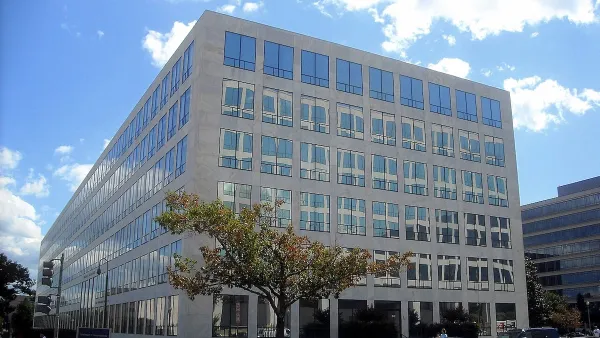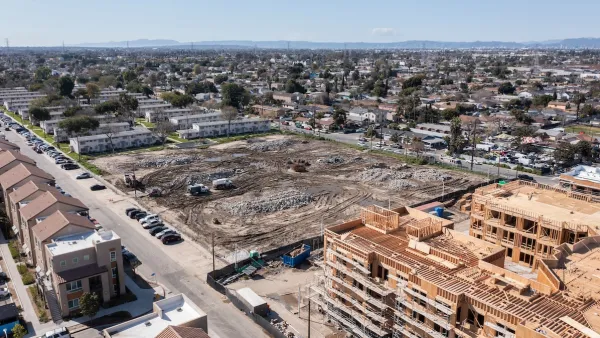The proposed law would exempt some conversion projects from local zoning regulations.

Connecticut’s state Senate just approved a new bill that supports the adaptive reuse of commercial buildings, reports Ken Dixon for CT Insider. The bill requires that projects seeking to convert retail, office, and hotel spaces to housing get approval from local officials, but exempt such projects from public hearings or special permits. According to Sen. MD Rahman, D-Manchester, “properties that are currently vacant and blighted will become more attractive for transformation and get back on the tax rolls.”
“If approved there and signed into law by the governor, who proposed similar legislation during his February State of the State address, it would let owners of retail, office and hotel space make partial or total conversions to apartments, in an attempt to address the state's housing crisis,” Dixon adds.
Opponents of the bill say it takes too much decision-making power away from local officials and community members and point out that it doesn’t differentiate between housing units at different affordability levels. “Sen. Tony Hwang, a member of the Planning and Development Committee, who also voted against the bill, railed for several minutes on a lack of affordable housing requirements in the bill, and the ability of developers to avoid public zoning hearings.”
FULL STORY: Turning commercial buildings into apartments could soon be easier in Connecticut

Analysis: Cybertruck Fatality Rate Far Exceeds That of Ford Pinto
The Tesla Cybertruck was recalled seven times last year.

National Parks Layoffs Will Cause Communities to Lose Billions
Thousands of essential park workers were laid off this week, just before the busy spring break season.

Retro-silient?: America’s First “Eco-burb,” The Woodlands Turns 50
A master-planned community north of Houston offers lessons on green infrastructure and resilient design, but falls short of its founder’s lofty affordability and walkability goals.

Test News Post 1
This is a summary

Analysis: Cybertruck Fatality Rate Far Exceeds That of Ford Pinto
The Tesla Cybertruck was recalled seven times last year.

Test News Headline 46
Test for the image on the front page.
Urban Design for Planners 1: Software Tools
This six-course series explores essential urban design concepts using open source software and equips planners with the tools they need to participate fully in the urban design process.
Planning for Universal Design
Learn the tools for implementing Universal Design in planning regulations.
EMC Planning Group, Inc.
Planetizen
Planetizen
Mpact (formerly Rail~Volution)
Great Falls Development Authority, Inc.
HUDs Office of Policy Development and Research
NYU Wagner Graduate School of Public Service




























